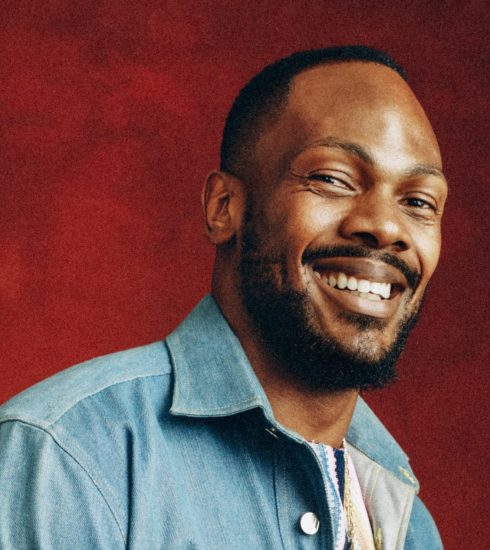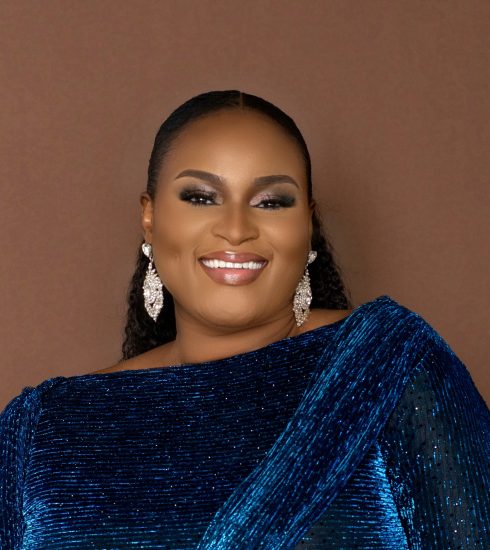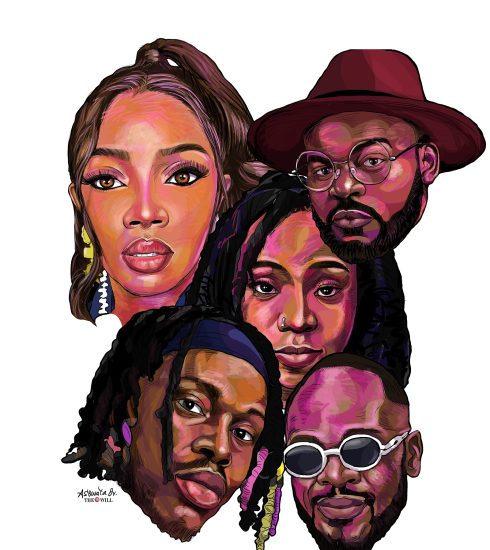Nabila Aguele’s Journey of Advocacy And Impact
Over the years, the movement for women’s empowerment has grown stronger, breaking down walls that once silenced the voices of young girls. From grassroots campaigns in local communities to global initiatives, more platforms are giving women and girls the tools, resources, and confidence they need to take their place in society. These efforts are not just about education; they are about creating opportunities, opening doors, and ensuring that every girl knows that her voice matters and her dreams are valid.
At the heart of this change in Nigeria is Nabila Aguele. With a career that began in law and evolved into governance, policy, and now leadership, she has leveraged every stage of her journey to create a lasting impact. Today, as the Chief Executive, Nigeria at the Malala Fund, she is driving strategies that break barriers for girls’ education and push for gender equality. Through her intentional work, from policy advocacy to community-focused initiatives, Nabila is helping build a future where every girl can learn, lead, and thrive. Her passion for change and her ability to turn vision into action have made her a force in the fight for inclusivity and opportunity.
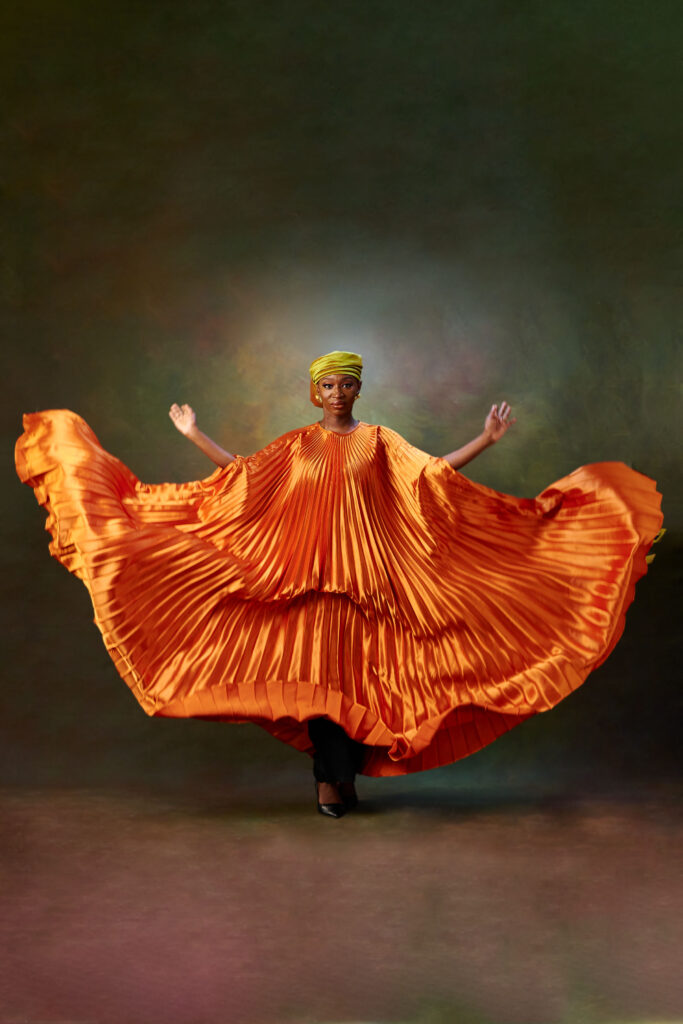
In this interview with THEWILL DOWNTOWN’s Dorcas Akintoye, Nabila Aguele discusses her inspiring journey, the power of advocacy, and her mission to create lasting change for girls across Nigeria. She opens up about her work with the Malala Fund, the challenges and opportunities in advancing girls’ education, and why empowering the next generation of women is the key to transforming society.
You’ve had a diverse career, starting in law, moving into governance and policy, and now leading the Malala Fund in Nigeria. What moments or decisions shaped these transitions, and what has kept you grounded through these changes?
I would say that for each transition, the decisions were really rooted from active reflection on where I was, internal pulse check around, did I feel like the work that I was doing really was helping me develop the skills that I needed to have impact and really show up in ways that I now. So, for example, I see each in my career rather than sort of a career pivot, but a season in an overall journey. And in each moment, I’ve been able to carry forward all that I’ve learned—the connections, the skills learned, and I’ve been able to apply those skill sets in new ways in each season. My first pivot actually, or my first transition, I would say, was actually from science to law. So my undergraduate degree and my focus at the time was around the biological science BSc in human biology and informally pre-med. And as I went through that experience, it just became very clear to me that I was drawn more so to social and ethical at the time, I didn’t know what to call it, but I guess in hindsight, it’s development, it’s impact, it’s policy, it’s how regulatory systems drive change for people. And so at that time, I transitioned out of the sciences and decided to go to law instead. And once I entered the legal space, again, for me, it was about actively learning, growing, leaning into things that I enjoyed while being somewhat strategic, but more so looking for opportunities that felt aligned. And, you know, following my graduation, I pursued patent litigation and ultimately was invited back as a law professor at my alma mater, the American University Washington College of Law, where I was able to teach upper level law students and also co-run the intellectual property law clinic, which is part of the school’s network of highly ranked internal nonprofit law firms, basically, where students represent real clients in cases and in initiatives that drive change. So I kind of found myself in that role very serendipitously. I didn’t actively pursue it. I would say the roles I actively pursued were my initial roles out of law school. But this opportunity came to me organically out of work that I had been doing. And, you know, as I was getting ready to be considered for full-time opportunities as a law professor, because I was doing this practitioner and residency fellowship, I just couldn’t shake this pull, this nudge to really be leaning into issues around Africa, Nigeria. And it also became clear to me at the time that my interest in terms of how I showed up professionally extended beyond core law practice or law teaching. So, I had to make a really difficult decision around would I stay on this path that was more or less guaranteed for me, and a path that I had realised much earlier in my career than I would have thought. I mean, at that point, I was in my early 30s or would I sort of leave it and, maybe try a new path with risk, etc, attached. And I ultimately decided that, if I’m going to have to go on the teaching market anyway, for positions, I may as well be brave and be bold, and try the things that so many people at the time were telling me, maybe this isn’t the best time for this, you should focus, you should lean in. So your academic career, why would you give this up so many people aspire to this. At that stage, that was sort of the biggest of the transitions, I would say, because at that point, I had built a career already, I’d been in law practice and teaching combined for about eight years. But I just couldn’t shake this feeling that if I stayed on this path, and I became more focused in patent litigation and in academia, I would miss an important opportunity to explore this question about what it felt like to have a professional career that matched my personal experience of being a global citizen, of being someone who for whom human impact and social issues were central to the work that they do and somebody who drove change at the intersection of different disciplines and sectors, rather than being sort of a core sector specialist. So that sort of self-reflection and consultation process took several years. It wasn’t like an overnight thing. And it ultimately led me to apply to business school as a pathway to move home. Anyone who’s done career transitions knows that the act of transitioning is grounding in and of itself. It’s very humbling. People will ask you, “Are you okay?” “Are you sure?” “Why would you throw away, everything that you’ve done to rebuild from scratch?”, “There’s so much uncertainty”, etc. But I think for me, what has kept me grounded is really that consultative and that active reflective process to really make sure I’m transitioning for the right reason. I think also what keeps me grounded is recognising that inasmuch as there isn’t certainty around where the transition will lead you. For example, when I went to business school, I did not know at the time that I would definitely become a special advisor in the federal government, I thought maybe I would transition into the private sector in Nigeria, and had sort of begun prepping with that in mind. But over the course of the experience, and the year I spent subsequently, it was very clear to me that that was not where I fit. And that an opportunity advising in government would really allow me to show up in that sort of intersectional integrated way that I really wanted to. So, I think for me, it’s about sort of being open to shifts as the journey unfolds, being open to changing your mind or shifting your assumptions about where you should be and why you should be doing it. And being highly consultative, but then always checking in with sort of what my goals are and my objectives, because people give advice, but everyone’s advice is based on their own perspective. So many were like, why would you come to Nigeria and not practice law, you should come and you should go to law school, that should be where you focus. And I knew that for me, that was not the right path, even though it was the most obvious choice. And I chose instead to get an MBA and to not practice law in Nigeria, because I realised that for me, impact was more of what I craved rather than sort of continuing a career in law practice.
As Chief Executive, Nigeria at the Malala Fund, what does a typical day look like for you, and what aspects of your role excite you the most?
There is no typical day. And honestly, I love that variety. I’m somebody who really thrives in work that is dynamic and multifaceted and allows me to show up both internally and externally. As you may know, I’m the Chief Executive in Nigeria. My core mandate is driving and leading our overall country framework, which includes grant-making. So, we grant-make to local organisations. And I also lead a team that does advocacy with policymakers and community stakeholders and non-policy stakeholders in furtherance of our ultimate goal, which is to ensure that girls are able to access and complete secondary school. With that in mind, some days, we are engaging with policymakers, whether it’s at the federal level or at the state level. Other days, for example, we are engaging with traditional rulers. In June, our co-founder Ziauddin Yousafzai, Malala’s dad led a delegation of us to meet with his eminence, the Sultan of Sokoto, to talk about his role as a champion around girls’ education, and to discuss how we could collaborate towards advancing male allyship and furtherance of girls’ education. Other days, you know, I’m looking internally, I’m working with the team to build out our focus, our advocacy focus areas, doing desk research. Some days I’m speaking at events or engaging with broader ecosystem players. And then also, collaborating with peers and sector partners and organisations, both nationally and globally to drive change. Because we believe very deeply in the power and the necessity of collective action. I think what excites me the most is the time that we spend working and supporting our education champion network. That’s what we call our grantee partners, not only in Nigeria, but across the world. And for me, it just really speaks to the dynamism of our CSO, nonprofit and social enterprise organisations in Nigeria, most of which are led by young people. And we have a great and growing portfolio of young women-led organisations that are driving change in the education sector. So, for me, any time I get to spend with them, learning about the work that they’re doing, thinking about with our team, how we can amplify our shared advocacy goals and watching them in action. For me, that’s really powerful. Also, for us, the voice of girls is critical. So, for example, last year, we organised an event for International Day of the Girl that was centred around the powerful voice of girls to speak about what their needs are with respect to education and what their challenges are. And what was so powerful about that event was that they were at the centre. They led most of the programming with stories, with calls to action, as panelists speaking alongside established, much more senior colleagues from government and development partners. And just to see and experience the power of their voice and conviction, I can never get tired of that. And for me, being able to demonstrate and to remind people that our young girls have a voice and have a clear vision for themselves. They do want to go to school and they know what their needs are. And also our CSOs, our nonprofits are expert innovators and advocates around these issues. For me, that’s especially exciting. And just to give you an example, you know, in Adamawa State, for example, one of our partners, which is called CATAI. CATAI stands for Center for Advocacy, Transparency and Accountability. They worked with the state government in Adamawa to develop the state’s first-ever education policy, which was gender responsive and had specific provisions around girls’ education. And it really speaks to the power of what happens when local organisations are funded and empowered to drive policy change.
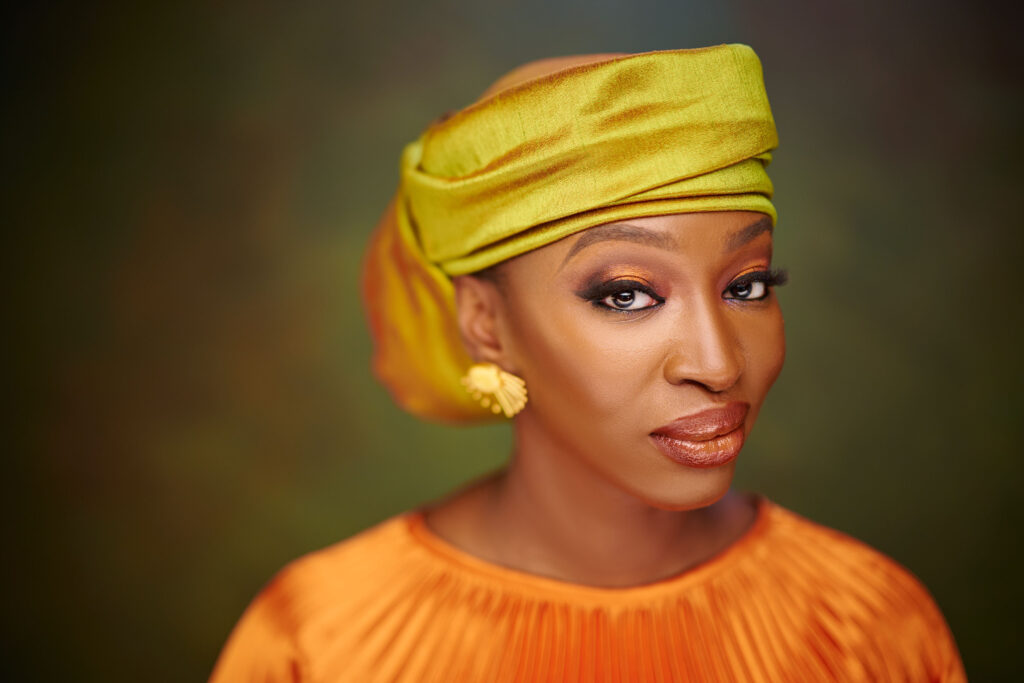
The Malala Fund is known for its impactful advocacy for girls’ education. What unique challenges and opportunities do you see in implementing this mission in Nigeria?
So I think in terms of challenges, the main challenge, and we know this, is the scale of the problem. First of all, the scale of the general out-of-school problem, but also the specific scale of numbers for out-of-school girls. So, for example, according to the most recent data, Nigeria as at the basic education level, so we’re talking primary to junior secondary, 7.6 million girls are out of school. We know that approximately only 9% of the girls from lower-income families are able to reach secondary school compared to 81% of those from higher-income, richer families. And we know that in Nigeria, multidimensional poverty and poverty broadly is a huge issue. There are so many barriers to education that include insecurity, poverty, norms, social norms that keep girls out of school. There are systematic barriers, including chronic underfunding in the education sector and in human capital more broadly. And even where there is money, that money is not spent efficiently. And it is not planned for in a way that is community and girl-centered. So, our planning systems lack gender responsiveness. There’s been some progress, right, both at federal and state, but by and large, there continues to be poor alignment between the outcomes that we want to see and the ways in which education sector plans are put together and executed. Child marriage and adolescent pregnancy continue to be a huge problem in Nigeria. And it’s why we at Malala Fund are focusing on the right to education for girls impacted by child marriage and adolescent pregnancy. Overall, nationally, over 30% of girls are married under 18. In the Northeast and the Northwest, that jumps to over 50%, with some states having child marriage numbers under the age of 18 being above 70%. This is according to the most recent NICS report conducted by NBS and UNICEF. So, these barriers, the lack of a coordinated, sustainable system, policy system, and the lack of really robust, holistic policies that are implemented efficiently and that speak to the needs and the voices of girls is a huge issue. Even with that, the opportunities are big as well. I mentioned earlier our young and dynamic civil society and nonprofit ecosystem. Increasingly, young women-led organisations as well. These organisations are driving innovation particularly at the state level. Many of them are supporting international organisations, multilaterals, with implementing and advocacy at the state level, even for some of our larger funded initiatives. And at Malala Fund, our sole model is to fund, partner, and advocate alongside these members of this dynamic civil society that includes organisations that are driving for increased education funding and better quality spend, as well as pushing for the right to access and complete secondary school for girls. And they’re doing this by engaging policymakers as well as community stakeholders and non-policy makers. Another opportunity is the resilience and clarity that our girls have across Nigeria. We need to listen more. We need to resource young women who are looking to start organisations to address their right to education. And we need to scale their voices, give them a seat at the table, and ensure that policymakers are listening and reflecting their needs and their expertise in whatever policy interventions we need to make. The last thing I’ll say about opportunity in terms of adolescent girls’ education specifically is that there is a fundamental right to education, which is what we’re pushing for. And that right should be preserved and addressed, irrespective of a girl’s status, right? But even beyond that, there is an economic and a development incentive to educate girls through senior secondary. Girls who are educated are better empowered financially and otherwise. They are better positioned to support and drive household income, and enter the labour market. And essentially, if your mother is not educated, you are less likely. In many places, you are unlikely to even go to school. So in order to stop the vicious cycle of out-of-school across the country, we need to address this particular set of girls and the gains, both economic from a health perspective, and from a financial inclusion perspective, are essential. And we need to pay attention to this, particularly in this moment in Nigeria, where, you know, the food crisis and the cost of living crisis is high despite recent economic reforms, and multidimensional poverty continues to be a huge issue. So there’s a huge opportunity in educating our girls, both for them and for our broader communities and for the country as a whole.
Beyond education, where do you believe investments in women and girls could create the most transformative changes in Nigerian society?
I think we need to continue to better share and underscore the reality that investments in education count towards investments in other areas as well. I think there’s a tendency to view these investments as separate priorities, almost competing priorities at times. So you’ll hear people say sometimes, we need to invest in health. Health is where we need to focus. We need to invest in financial inclusion. That’s where we’re putting our money. So I’ll start by saying that investing in the education of adolescent girls, ensuring that they are able to finish education through senior secondary and making that a policy priority and ensuring that it has the highest leadership and political will at federal and state levels is by default integral to investing in women and girls. It’s why if you look at the Nigerian national policy on Women’s Economic Empowerment, education and skills building is a core pillar across a multisectoral set of pillars to drive economic empowerment with adolescent girls’ education being specifically called out. So I think, having that integrated approach for me is absolutely necessary. But with that in mind, investing in women’s and girls’ economic empowerment and looking at those investments as a holistic suite of investments that capture both investments in health, better health outcomes, investments in better financial inclusion, investments in digital literacy, and investments in moving women and girls up the value chain in sectors where they are the majority. So, for example, in the agriculture sector, we know the majority of people in that sector are women. However, if you examine the sector, the majority are still at the lower end of the value chain. They are not empowered, and there are no structures and processes for them to move up. So being really intentional about where women and girls sit within sector value chains, specifically value chains where they are the majority, especially, I think, is really important. I’ve mentioned financial inclusion. I think also, all of these things create better transformative change in Nigerian society because it has been demonstrated that these investments, whether it’s in women’s leadership, ensuring more women have a seat at the table, whether it’s investments in financial inclusion, health, et cetera, there are gains to be met not only for the women and the girls themselves, but for their families, their communities and for broader society. So I think understanding that it’s important to do this work because we cannot and should not leave our women and girls behind. And we candidly cannot afford it at this stage in Nigerian history. But I think also recognising that without these investments and if you look at countries, whether it’s in Africa or globally, those countries that are investing in human capital and are especially investing in women, girls and youth are the ones seeing sustainable gains in terms of development and economic outcomes and inclusive growth that is sustainable and country-driven. So for me, it is a necessary aspect of a robust approach to transforming transformation across our society.
How do you measure success in your role, not just in numbers but in terms of long-term impact on communities and education systems?
Our core focus is on shifting, including ensuring more policy action and implementation that ensures girls are able to access and complete secondary school. Over the next five years, our priorities, as I’ve mentioned, are our education financing and better quality spending and also the right to education for girls impacted by child marriage and adolescent pregnancy because of the sheer scale of what those girls represent. So, we’re looking at that both through pushing for an end to child marriage by centring education as a key policy solution. And also by pushing for policies and frameworks that ensure that the large volume of girls who are already married and or have had children under the age of 18 are formally returned to school and are able to complete schooling. So, for me, in terms of what success looks like, it is, first and foremost, in how we continue to fund and partner and amplify the work of our grantees, who are powerful education champions in a network, because they are the ones who are best positioned to drive sustainable change. You know, Malala fund is a global organisation and while global organisations are critical development partners, et cetera, our role should be is and should be catalytic. And so, really ensuring trust-based financing for these incredible organisations so that they can drive change that is systematic, that is about engaging both policymakers and community leaders and the girls themselves, centring the voices of girls is critical. I think for me also success looks like better awareness around the importance of adolescent girls’ education and the necessity, both from a rights perspective and also from a broader national development perspective. There still continues to be a lot of misconceptions and really poor understanding of why there is a push for girls’ education. It is not about leaving boys out. It is not about prioritising one area over another. Yes, it is about the right to all girls for school. But it’s also important for policymakers who maybe are not able to understand or are making difficult decisions around where to focus, recognising that being intentional in terms of education sector planning and budgeting is sort of a big part of the way forward. I think also just continuing to drive conversation and action around these issues is also what success could look like for us.
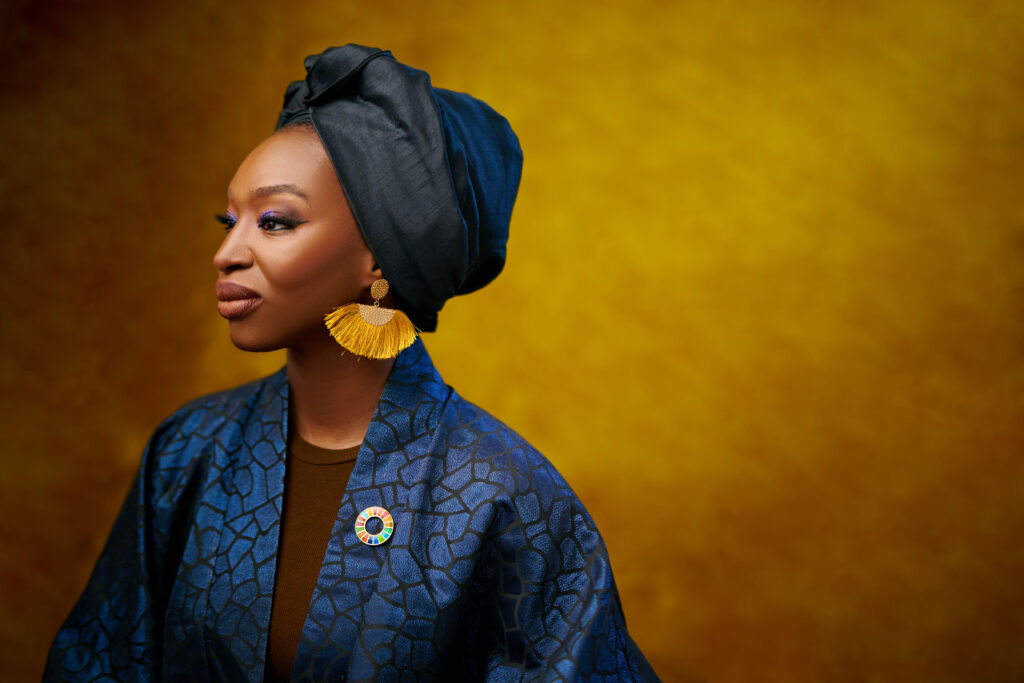
You played a key role in shaping Nigeria’s Integrated National Financing Framework. In hindsight, what lessons did you learn about collaboration, implementation, and sustainability in policy reform?
The Integrated National Financing Framework is a UN tool to help countries across the world take a more integrated and whole-of-government approach to mobilising resources, whether it’s domestic, international, private sector, or public sector, to advance sustainable development and finance the Sustainable Development Goals. So I was very honoured and opportune to be tasked by the Honourable Minister of Finance, Budget and Planning to lead on the technical aspects of this work. And what I learned about this work and other work as well, including the work that we did that I supported in the development of the National Women’s Economic Empowerment Policy, is that the work always has to be owned by long-term actors in the policy space. So what I mean is as an advisor, my role was temporary, right? I was there for seven years, but there was always a start and an end point. And I think being very humble and intentional about how you move and drive the work so that it is ultimately owned by agency heads, by civil servants is very key. And I think really having that understanding that it is not about sort of you as an individual, but it’s about the work and it’s about that ownership. And to really ensure that ownership, it’s about taking the time to sensitise and raise awareness around what is an integrated national finance and framework, for example, why should it matter when we started this work or when the Honourable Minister committed to driving this work? It was December pre-COVID. So it was like December 2019. A couple of months later, the COVID-19 crisis happened and there was a quick rush to push action towards that. And we ran the risk with the integrated national financing framework of it feeling like a distraction, like something that was not relevant. So I think for us, it was very important. And I was part of a team that was integrated, that included other colleagues and other organisations, other government agencies. So it was very important for us to demonstrate how such a framework was not only important, but it could help us drive towards our COVID-19 recovery. And really doing it in a way that is sustainable. So recognising that there’s a need to ensure that those who are in the system, once you leave, are able to articulate and drive that change. And so I’m so pleased to see that it continues to be work that is owned by the Ministry of Finance. I think some other things I learned from that work is that it’s so important to have champions in the system. So in this regard, the Honourable Minister was a champion for the framework alongside the senior special assistant to the president on the SDGs. Their leadership and their support to the initiative was integral to having it owned and launched and driven. I think what I would say, too, is that frameworks and policies are only as strong as their implementation and durability across different administrations and across different agencies. And so ensuring that buy-in and that ownership is really critical. Using a listening ear and leveraging opportunities like workshops and media engagements, talking opportunities to drive broader awareness around the issues. And also to highlight the achievements of the team that is working towards driving this, is part of how you incentivise more people to buy in and ultimately own the process. But I would say ultimately, implementation is key.
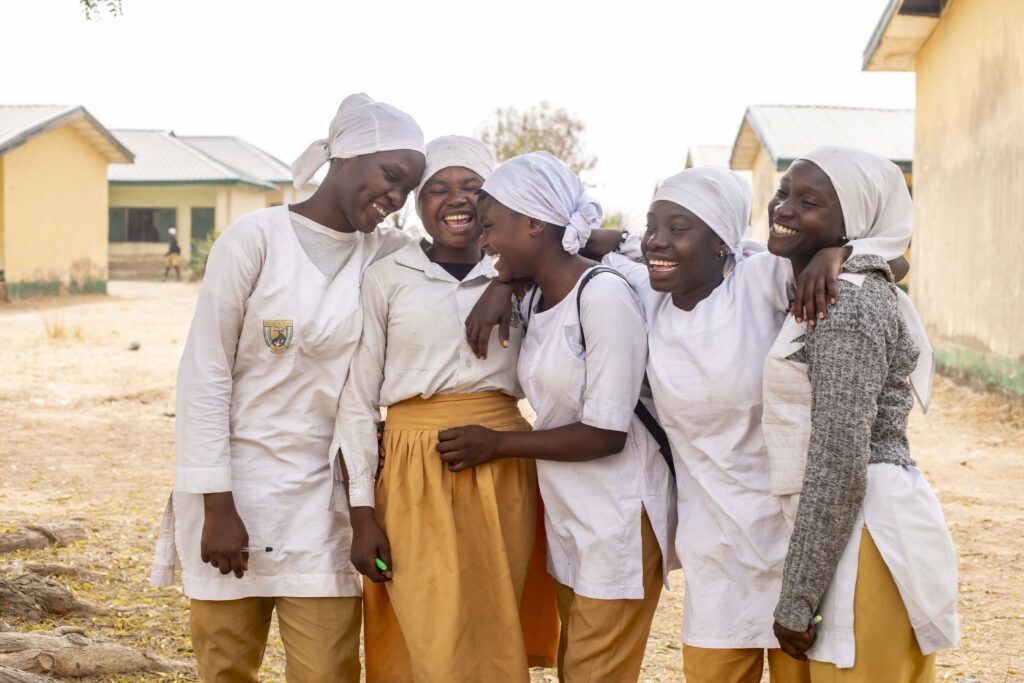
How do you balance the tension between policy ambition and the realities of implementation in a complex governance environment like Nigeria?
I think the balance is in being unapologetically bold and mission-driven for me. I think everybody will answer this question differently. The balance comes in being rooted in purpose, like I moved back and I joined government because I wanted to better understand our systems, better understand why we are where we are. Why, despite being called the giant of Africa, a rising giant, why we’re yet to fully realise our full potential. And also to be part to play a small part in helping drive change. And so for me, the balance comes in having that unapologetic ambition around what you want to achieve, while also being grounded in the reality that change is slow. Change is iterative. Change involves sometimes taking two steps forward and five steps back. You know, change is about collaboration and community and working closely with other change agents within the system and across different types of stakeholder groups to drive to drive change. And I think it’s in being honest with yourself about those moments where you may feel a bit discouraged and immediately leveraging your community of fellow change agents and those safe spaces to vent as needed, but also to stay focused and to innovate and to think through solutions and to learn. So I think it’s knowing that you’re in the system to be a change agent, but also being humble that you’re only one person and that doing the work the right way and pushing has to be enough, even though the ultimate goal is sustainable change long term. I think for me too, it’s about listening deeply, really trying to take the time to understand incentives, capacity levels, and to recognise that everyone is dealing with their own set of struggles and challenges within the system. And so I think having a sense of empathy sometimes, particularly with the core public service, is critical. And looking for wins, really focusing on small wins and as much as you focus on the big wins and being flexible and having grit and persistence. For me, is how I balance it. I’m very community-driven, and I’ve been really fortunate inasmuch as I don’t know that I was expecting it when I moved back to Nigeria after living abroad most of my life. I knew there would be opportunity in this work, but I didn’t realise that I would make some incredible friends and build an incredible community along the way. And that community includes other SAs, you know, mentors who served as ministers and special advisors, civil servants from whom I’ve learned a lot about how to engage the system and understand how to drive change sustainably. And then also people in the nonprofit and development sector who are also driving change in their own way. So I think that’s how I personally balance the tension. But it can be difficult, and it really requires active self-reflection and introspection. And sometimes you just need to create that space to reenergise and to fill your cup. I think it’s also important to be realistic, like I’m a realist. I call myself a realistic optimist. A cautious optimist, in that I am a dreamer, an unapologetic dreamer, but my dreaming is also rooted in an understanding of the reality on ground, which can be very bleak. Like, if you look at girls’ education, for example, and you look at the numbers, it can be quite discouraging. So for me, I think it’s a balance between knowing what the reality is, but also being very careful and intentional about where you engage. I don’t want to call it negativity or pessimism. I think it’s understanding that it’s one thing to be a realist about what’s going on and what needs to be done. But it’s important to be careful not to shift too much into pessimism that can be unproductive and prevent you from having that vision and that hope that drives change. Like for me, my ability to show up and do this work day in and day out comes from a place of hope and a vision and a place of belief especially in our young leaders and young women. And so I think I’m very intentional and deliberate about my energy and where I get that energy and that motivation from, because it’s critical, especially with everything going on both at home and globally as well.
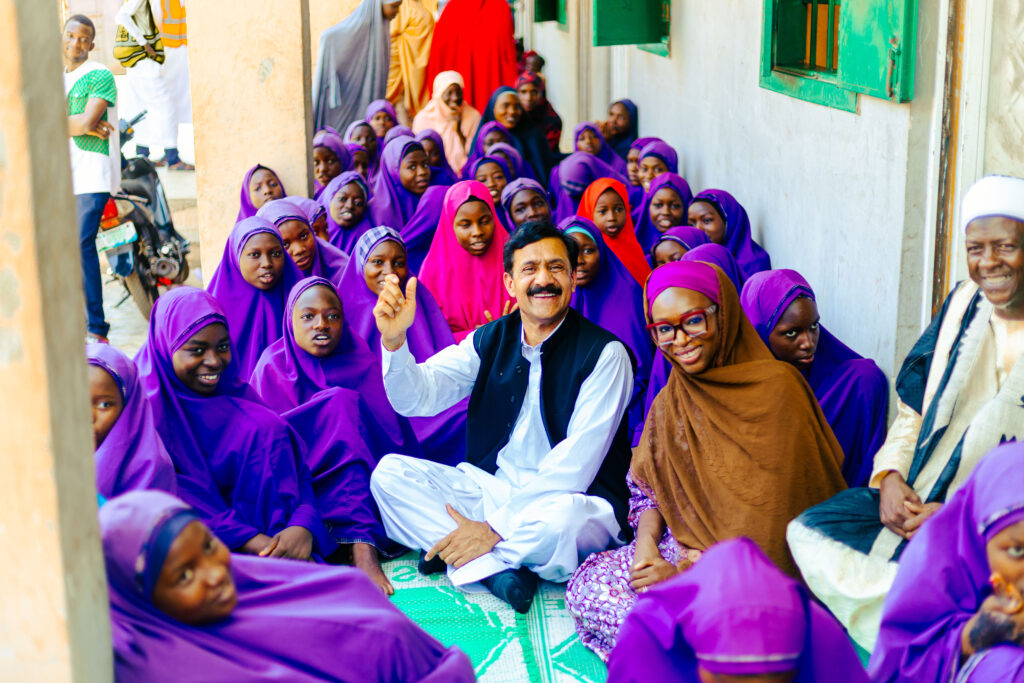
You’ve worked in law, policy, and now nonprofit leadership. How do you continue to grow and stay innovative in your approach to leadership and advocacy and how do you take care of yourself and avoid burnout while leading in such demanding spaces?
So for me, I’m somebody who naturally has a growth and a learning mindset. Yes, I know that I’ve accomplished a lot of things and I know a lot, but I think that I don’t always presume I know more than anybody in the room. And I’m always learning. You know, I’m a lawyer and foundational to law practice is research. And it’s recognising that your conclusions should be rooted in data, research, consultation, and discourse. And you should invite diverse perspectives. So for me, I’m always researching and listening and talking. I really enjoy being at conferences and convenings both in country and globally, because for me, as somebody who’s very social and is, I guess, an extrovert and learns through discourse and networking, as well as I learn through reading those interactions and being able to listen and talk to people in the space or in other spaces is integral to how I learn and grow. I think I also try as much as possible to recognise that we are all human and I, like everybody else, have my biases implicit and otherwise. And so inviting diverse and alternative perspectives and dialogue is very important for me. I also don’t believe that solutions exist in any one sector or any one discipline. It’s probably clearly why I’ve hopped across different disciplines. I really believe our best solutions exist on the margins and at the intersections of different disciplines and approaches. I also believe fundamentally that, like, growth and innovation are as much about how you approach behavioural psychology and leadership development for yourself and others. So I very much enjoy engaging in discourse and learning about organisational and personal leadership development, and how behavioural psychology, both individually and community behaviours and psychologies and patterns, impact decision making and mindsets. I also fundamentally learn by doing, so I currently serve on and am a lifelong professional volunteer, so I’ve been volunteering professionally at different levels since I was in secondary school. But at present, I’m honoured to serve on three boards: Women for Women International, which focuses on women in conflict zones; Girl Rising, Leveraging the Power of Storytelling to Advance Girls Education; and INSEAD Business School, which is my alma mater. That work for me is both an opportunity to serve, but it’s also an opportunity to learn, to learn from the organisations, to learn from the incredible colleagues on the boards and to learn through the way in which we collectively show up in each of those organisations to drive change. In terms of how I maintain balance, I often joke about this imperfect imbalance between career and personal life. For me, it’s compounded as it is for many other professional women, especially since I’m a mother of three children. My daughter just turned nine today, August 26. I have a soon to be seven year old boy and a five year old girl. And so for me, there’s no perfect balance. What I do is I take the approach that it’s not one versus the other. Instead, I’m living an integrated life that integrates both my personal, professional and other facets of my life. And I actively work to drive change in all areas and to improve in all areas. I’m very much family centered and have a lot of demands on my time. So I think motherhood, especially, has really taught me candidly, especially post-COVID, how to be intentional, how to say no. I used to be, very much a yes person, not sort of in a weak way, but somebody who always felt, called to show up and to support and drive change. I’ve realised that being intentional and deliberate is critical to being able to do that sustainably. So I really balance the two. I also have an incredible partner— my husband. So we are in what I would call a dual career household where we’re both actively advancing our careers and our leaders in our own respective areas. And so that support and that commitment among success and my dreams and how that then manifests and how we partner with respect to managing and balancing family and other areas has really been integral for me and just delegating like my mother, especially who raised five children while pursuing a PhD and ultimately becoming a pharmaceutical scientist and an entrepreneur alongside my father. My mom demonstrated and always encouraged me to be okay, delegating and to avoid feeling guilty about not showing up all the time in all ways. And so I’ve learned to be very intentional about how I show up and when I show up and being fully present when I do. I make time, especially now in my mid-40s, for myself, for my joy, for my creativity. I’m a creative for my friendships and my community. I’ve understood that I personally and I don’t think anybody else can core from an empty cup. And as I mentioned earlier, our energy, how we manage our energy and how we encourage ourselves and build community is key to how we’re able to drive change, especially during those incredibly crazy, busy periods where you’re working late nights and weekends. I mean, those exist. It is what it is. So for me, that’s important. The other thing that I do very intentionally, and I think when I coined this for myself, was post-COVID-19, I think a lot of people really introspected as part of the COVID experience. And for me, I made a commitment to, first of all, align passion with purpose in all areas of my life. And I also sort of really owned that I am at my core, a creative being. And that creativity isn’t about just painting or enjoying creative things. It really informs how I think, how I innovate, how I build relationships and how I drive change. And so I think really taking the time to introspect and to have clarity on who you are and how you want to show up in the world for me personally has helped with burnout, because I think sometimes burnout isn’t just about the work that you’re doing; it’s also about sort of that energetic waste from really knowing that you’re not where you should be or you’re not showing up in the ways that you should, especially for those of us that have the privilege. So this is really not about everybody. Not everybody has those opportunities. For those of us that do, I think we owe it to ourselves to be very intentional about what we want to do, what we want to leave behind, and how we want to show up. And I think to be very intentional about impact and purpose.
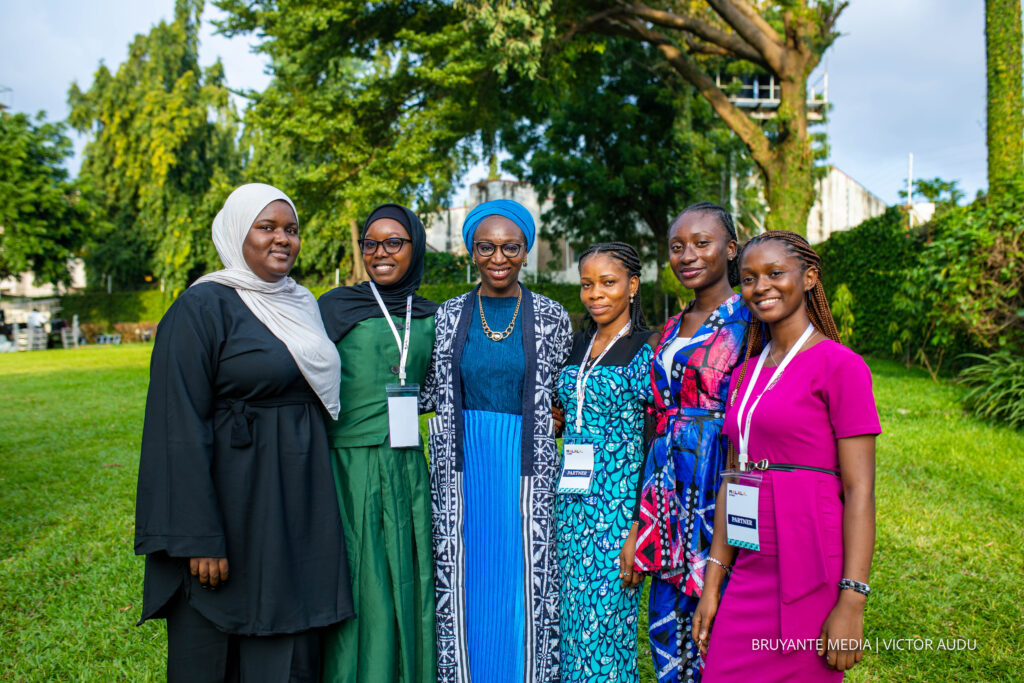
Looking ahead, what vision do you hold for yourself and for the Malala Fund in Nigeria over the next five years?
We launched a new global five-year strategy in April. And as part of that in Nigeria, we launched our country framework with our country priorities. So my vision is really significant action towards ensuring girls are able to access and complete secondary school with a focus on better education funding. We in Nigeria, Nigeria at federal and in many states is still underfunding the education sector. And even where there is money, that money is not being planned for with the needs of communities and girls and other stakeholders in mind. So, really ensuring that there are systematic changes and there’s gender-responsive education sector planning and budgeting. And then also really building awareness and understanding around this huge crisis that we have. And I think this crisis has been addressed and raised in bits and pieces. But what I mean is within the out-of-school girl population, adolescent girls, there is this embarrassingly high number and percentage of girls who are married already under the age of 18 and are already mothers under the age of 18. And we need to constantly remind each other and ourselves of these numbers. So, for example, one statistic that I was shocked. I mean, I’m shocked at all of it, to be quite honest, even as somebody who sees themselves or has been in the gender and equity space for some time now. I think when you deep dive into the numbers, it can be quite sobering. So the numbers on child marriage, I keep returning to them because Nigeria has the highest number of girls who are married under 18 in all of West and Central Africa. And depending on which source you use, that number ranges from 22 million to 25 million, so we need to be grounded in these numbers. There’s been a slowing right in some respect, but it is not happening at the scale and at the rate that we need it to. These girls are falling through the cracks. And once they are married and are pregnant and have children, their ability to finish school is significantly limited, as is that of their own children, both boys and girls. So for me, I want this to become a household issue. We want to drive change specifically in our focus states, and we want people to really wake up and be motivated to address the right to education for this category of girls. And ensuring that there are the right policy frameworks and implementation and community shifts to ensure, first of all, that we are pushing towards a systematic end to child marriage that, in part, centres education as a policy solution. But that also addresses the need to education for this set of girls, not just for them, but for future generations to come. Additionally, the vision is around policies and communities, policymakers and communities that listen to girls, that honour the girls’ voice and see them as experts in their own life and their own right to education rather than passive recipients. We also want to continue to contribute to building a thriving ecosystem of local organisations and growing and supporting the number of young women-led organisations that are driving for education change. Personally, I want to continue to leverage this role and the other ways that I show up to drive impact and to drive change. I want to also be an example, hopefully, to those who see maybe an impact-driven career as a potential path, and maybe helping people understand that there are diverse ways in which you can show up and be impactful. For me, I choose to do it in this way. But impact can be done across other areas and I just want to stay rooted in purpose and continue to be a dreamer and continue to be hopeful and continue to work alongside other dreamers and change agents to drive change for us in Nigeria, and I think Africa more broadly, and especially for women and girls. For me, gender, gender equality and a gender focus is always going to be part of what I drive. So those are some of the parts of the vision for me.
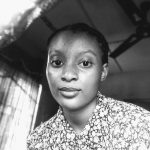
Dorcas Akintoye is a versatile writer with a passion for beauty, fashion, relationships, and culinary delight. With a keen eye for detail and a passion for storytelling, she adds a touch of elegance to every topic she explores. She is a writer at THEWILL DOWNTOWN.




